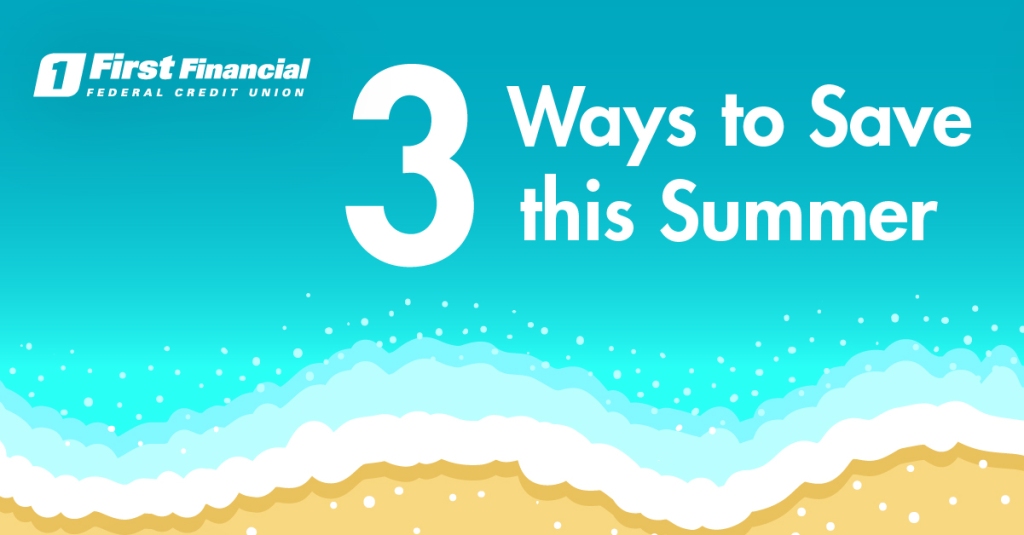
Wouldn’t you rather spend your money on making lasting memories with friends and family this summer? If you’re on a tight budget but still want to enjoy all that summer has to offer, here are three easy ways you can save.
- Save up to $300 by packing your lunch. Making your lunch is usually healthier and cheaper than eating out. Instead of buying lunch every day, take a few extra minutes in the morning (or the night before) – and make your lunch at least two or three times a week. You could save $20–30 each week, which will add up to $200–300 throughout the summer!
- Let Mother Nature dry your clothes. Give your dryer a break and let the warm summer air dry your clothes for free. You can also use cool water in the washer more frequently, which can clean your clothes just as well as warm or hot water. Changing up your laundry habits is an easy way to start saving money on summer bills.
- Earn up to $100 by selling your old clothes. No time or space for a yard sale? Clean out your closets and take those clothes you “might wear… someday” to a consignment shop, or sell your clothes from home through an online marketplace like thredUP or Poshmark. Put the money you make toward a summer vacation.
How about one bonus way to save?
Did you know you’re not stuck with the car loan you got at the dealership? Dealers can make a good bit of profit by increasing the rate on customers’ initial auto loans. For example, Lender “A” offers a loan at 5% APR but you may end up paying 7% APR with the dealer. You may be able to save money and/or lower your interest rate by refinancing your vehicle loan with us.*
It costs nothing to find out if you could save, and you may then be able to pocket some big savings to use for a vacation this summer.
Get started by completing our quick Auto Loan Review Inquiry Form.
*APR = Annual Percentage Rate. Not all applicants will qualify, subject to credit approval. Additional terms & conditions may apply. Actual rate may vary based on credit worthiness and term. A First Financial membership is required to obtain a First Financial auto loan and is available to anyone who lives, works, worships, volunteers or attends school in Monmouth or Ocean Counties. Current loans financed with First Financial FCU are not eligible for review or refinance. See credit union for details. A $5 deposit in a base savings account is required for credit union membership prior to opening any other account/loan.





